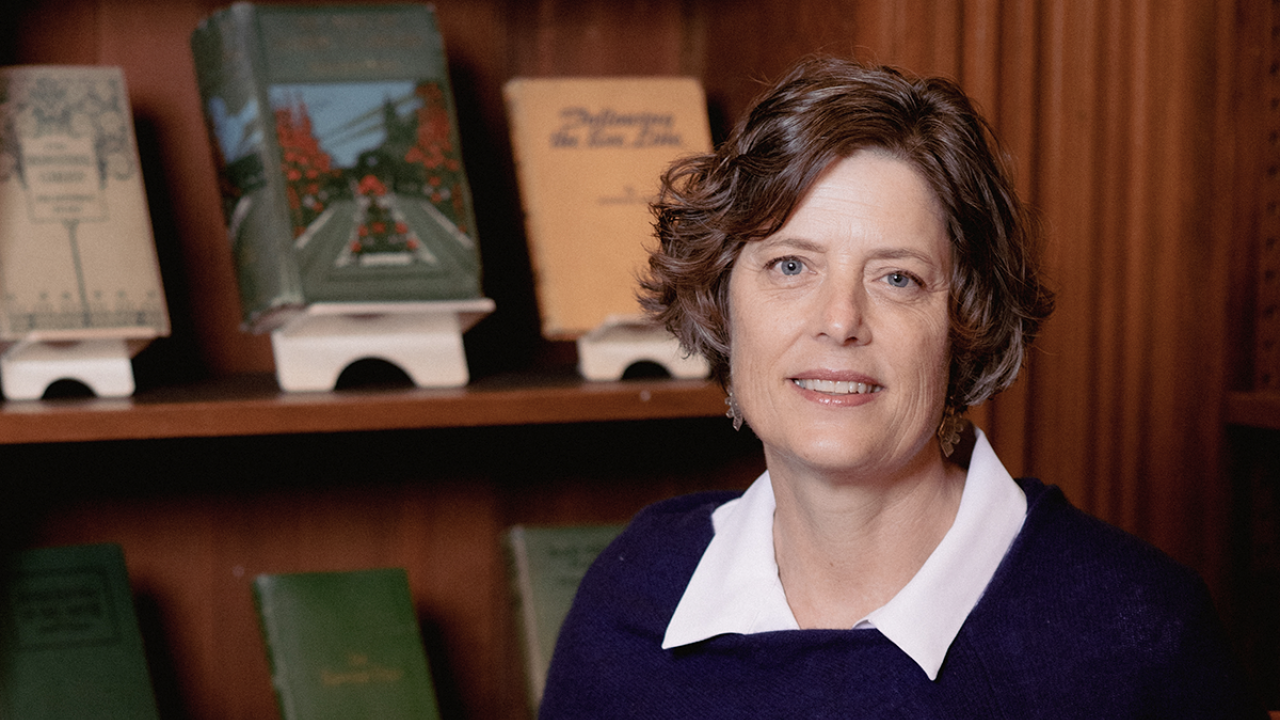
Building an Active Social Sciences Research Community at UC Davis and Beyond
Poverty and social inequality are major social challenges that require a strong foundation of research to take action. Marianne Page, a professor of economics, studies how families, the economy and social policies affect children’s likelihood of achieving economic success in adulthood. Her most recent published study is a meta-analysis suggesting that policies providing financial resources to economically vulnerable families have the potential to improve children’s outcomes.
Page co-founded the UC Davis Center for Poverty and Inequality Research in 2010 and serves as its co-director with Jacob Hibel, an associate professor of sociology. The center is a collaborative community of social inequality researchers from across UC Davis who represent economics, sociology, psychology, human ecology, nutrition, agricultural and resource economics, the School of Education, the School of Medicine and even the Graduate School of Management.
“I do feel that the center created a hub for academics coming from a wide variety of different disciplines who had shared interests, and that has led to something that's kind of bigger than just the sum of our individual parts,” said Page.
Building a community of research on poverty and inequality
The Center for Poverty and Inequality Research makes wide-ranging contributions that includes training and mentorship, policy outreach and relevant actionable research. For over a decade, the center has brought some of the nation’s leading social scientists to campus while attracting faculty and graduate student talent. The overall impact has even shaped some of the research that takes place in the College of Letters and Science.
“I know it's shaped my own research, which was always somewhat focused on poverty, but I think it's shaped the questions that I ask and the extent to which everything I do now connects to these issues that surround low-income families,” said Page.
How to take part in the Center for Poverty and Inequality Research
The center is open to participation from any faculty member or graduate students who are doing research related to poverty or inequality. Faculty affiliates get access to research funding when available, and they can take part in the center’s conferences and seminars. The center also funds both senior and emerging visiting scholars for talks and collaboration.
Graduate students can also join the center as graduate student affiliates and join peers who study similar topics while also getting access to additional training and mentorship. The center also has some office space for graduate students.
“Our faculty are not only really amazing scholars who are obviously also open to interdisciplinary research but they also value community,” said Page. “They are always looking for opportunities for their students. They are always willing to do a little bit more to make the center better.”
YOU MAY ALSO LIKE THESE STORIES

Going Upstream for Faculty Diversity: Summer Research Experience Builds a Pipeline of Diverse Future Ph.D.s
Increasing diversity among faculty in higher education has become a major priority within the University of California. A summer program led by the Center for Poverty and Inequality Research hosted CSU undergraduates from across the state to help clear a pathway for them to pursue advanced degrees.

Forget What You Know about Immigrants and Crime
New research finds that for the past 150 years, immigrants in the United States have had lower incarceration rates than the U.S.-born, and since the 1960s that gap has significantly grown.
